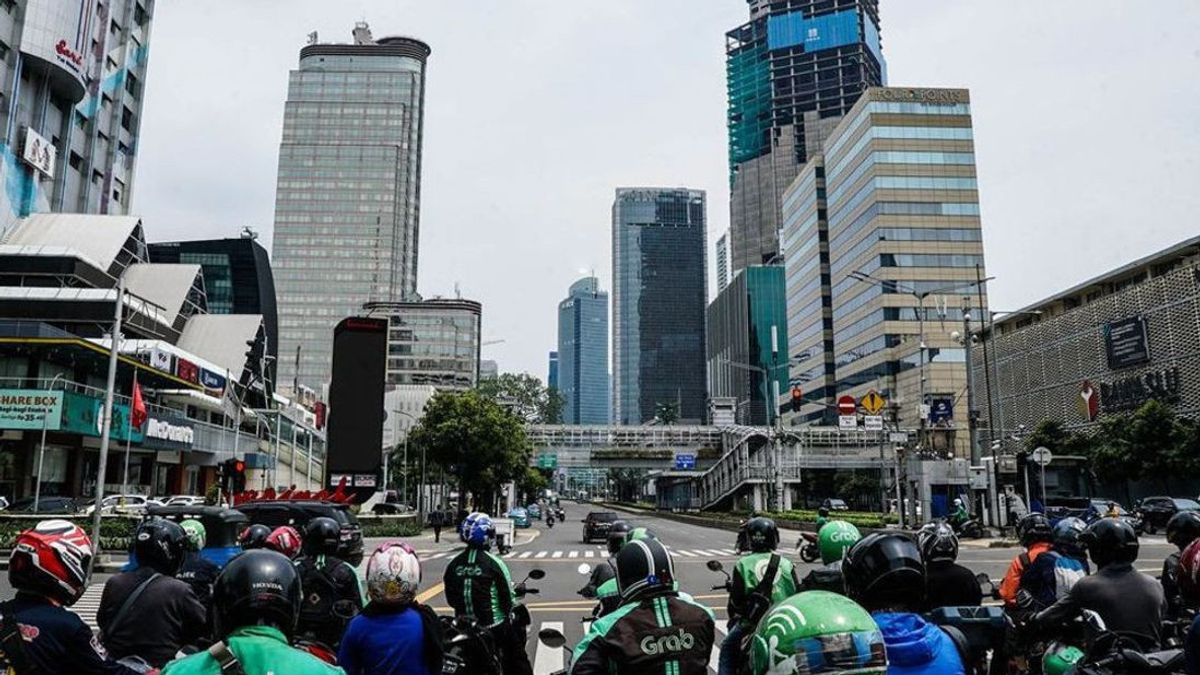
JAKARTA - Bank Mandiri economist Faisal Rahman said this year's inflation could reach 6.27 percent. This figure is far from the government's projection that targets inflation to be below 5 percent. In addition, it is predicted that Bank Indonesia will continue to increase the benchmark interest rate to reach 5 percent by the end of the year.
"From a domestic point of view, inflation is still expected to continue to be high so that inflation can reach 6.27 percent by the end of the year," said Faisal, Tuesday, September 27.
Faisal said the cause was the continued external pressure of many central banks in big countries in raising their interest rates. This leads to risk off sentiment in developing countries including Indonesia (capital outflow).
"In addition, the fear of global recess also increases the risk of lowering the trade balance surplus due to the decline in demand and the decline in commodity prices. Both of these things put pressure on the rupiah exchange rate," explained Faisal.
Meanwhile, said Faisal, winter in the Western hemisphere is predicted to increase inflation in Western countries. In Indonesia itself, the rainy season and the 2023 New Year's holiday are expected to encourage inflation.
"Rain or wet season as it is today can put pressure on food production. So inflationary pressures from food will still risk increasing inflation," he said.
In addition, said Faisal, there is also a Nataru holiday which also has a seasonal or seasonal impact where demand usually increases so as to increase demand pull inflation.
"High inflation and economic slowdown are challenges for countries around the world. Recently, the World Bank has lowered its projection for China and Asia growth in general. The war between Russia and Ukraine is still ongoing," he said.
However, said Faisal, there is still an opportunity for the Indonesian economy to grow in the midst of this global challenge. Moreover, if the Russian and Ukrainian wars continue, it is possible that global energy demand from Indonesia will still exist despite the slowdown from China.
"This is one of the reasons why we have been able to maintain the trade balance surplus for months. The surplus opportunity is still there, but it will shrink in the future," said Faisal.
Previously, Coordinating Minister for Economic Affairs Airlangga Hartarto revealed that the success of reducing the volatile food inflation rate was one of the factors in reducing inflation rates.
The chairman of Golkar also revealed that he continues to monitor the movement of food commodity prices so that they can immediately anticipate if there is a price spike, as well as maintain supply chains, especially food commodities.
The central government through TPIP-TPID will continue to strengthen coordination and synergy of policy programs to stabilize prices and expand cooperation between regions (KAD), especially for surplus/defist areas in maintaining the availability of commodity supplies.
"Along the efforts of TPIP and TPID in carrying out extraordinary efforts to control inflation, we will continue to suppress volatile food inflation in order to achieve initial commitments to HLM TPIP last March which was 3 to 5 percent," said Airlangga.
Food Supply
Meanwhile, Deputy Director of the Institute for Development of Economics and Finance (Indef) Eko Listiyanto, the food sector, is very decisive in controlling inflation.
"Why food, because in general regional inflation is triggered by a lack of food availability," he said.
Furthermore, Eko said the expansion of Inter-Regional Cooperation and optimization of the distribution sector is very important. However, not all regions have qualified food production capacity.
"Well, the problem is that food transactions between producing regions and non-producing areas are still limited, both because of the distance, as well as the limited number of inter-regional and inter-island traders which are the factors for levering inter-regional transactions," he added.
Eko suggested that regions that have good food production skills can maximize food production, such as outstanding areas that get prizes from the central government. This is considered to be able to help local governments reduce inflation in their regions.
The English, Chinese, Japanese, Arabic, and French versions are automatically generated by the AI. So there may still be inaccuracies in translating, please always see Indonesian as our main language. (system supported by DigitalSiber.id)
Most Popular Tags
#Prabowo Subianto #Constitutional Court #israel #iran #Mooryati SoedibyoPopular
25 April 2024, 08:47












